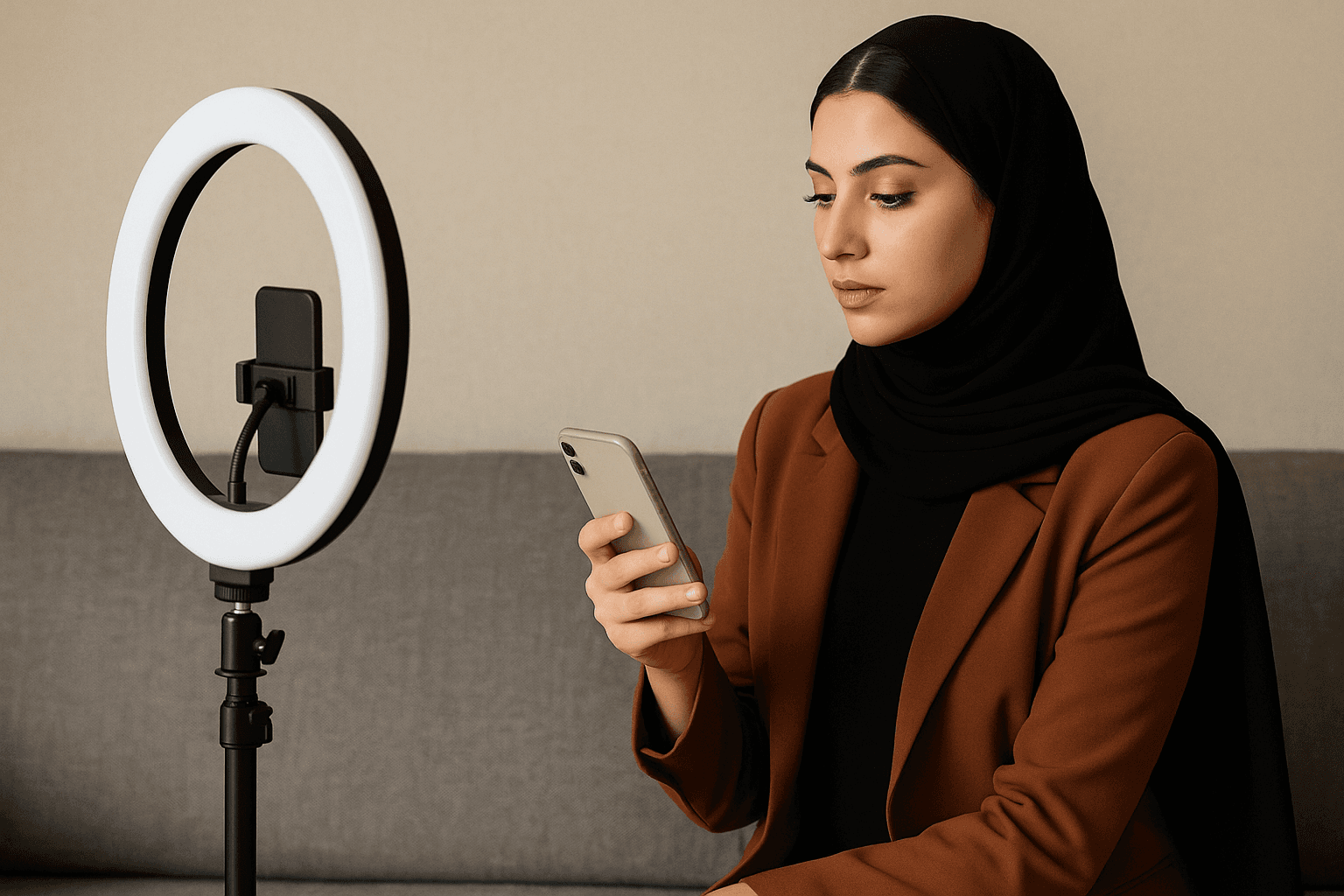
UAE Tightens Grip on Influencer Advertising with New Permit Regime
Regulators seek to formalise a booming but loosely governed social media economy and professionalise digital content monetization
In a region where social media influencers command massive audiences and wield substantial consumer influence, the United Arab Emirates has taken a decisive step to regulate online advertising -- mandating a special advertiser permit for anyone promoting products or services on digital platforms for financial gain.
The move, announced earlier this week by the UAE Media Council, marks a significant tightening of oversight over the country's fast-expanding influencer economy. The regulation is seen by analysts as part of a broader effort to formalise and professionalise digital content monetisation, a space long criticised for its lack of transparency, misleading endorsements and weak consumer protection.
“This is not just a bureaucratic requirement -- it’s a signal that influencer advertising is now being treated as a serious commercial activity,” said Sunil Ambalavelil, Chairman of Dubai-based law firm Kaden Boriss. “For years, it’s operated in a grey zone.”
What is the Advertiser Permit?
The new rule requires any individual or organisation engaged in paid promotions on social media -- including influencers, marketing firms, and corporate accounts -- to obtain a dedicated advertiser permit from the UAE Media Council, even if they already hold a general influencer licence.
The permit costs Dh15,000 annually and applies to all forms of monetised digital content, from sponsored Instagram reels and TikTok videos to YouTube brand partnerships and paid promotions on Facebook or X (formerly Twitter).
Entities failing to comply face potential penalties, including fines of up to Dh500,000, account suspension, and legal proceedings under the UAE's cyber and commercial law framework.
“Our aim is to enhance content standards, prevent misleading promotions, and ensure commercial transparency,” the Media Council said in a statement, adding that the move aligns with the UAE’s strategic vision for responsible digital growth.
Objectives and Rationale
The regulation responds to growing concern over undeclared advertising, influencer accountability and consumer rights, especially as social media increasingly rivals traditional media in advertising revenue and audience reach.
Officials argue the permit will help:
- Deter unlicensed or misleading promotions
- Ensure financial disclosure for paid content
- Uphold ethical standards across influencer marketing
- Bring UAE practices in line with global norms, including rules enforced by the UK’s ASA and the US FTC
The UAE first introduced influencer licensing in 2018. However, the latest update is more specific in distinguishing content creation from advertising, clarifying that promotional intent -- not just content volume -- triggers the need for a commercial licence.
Who Needs the Permit?
- Social media influencers promoting goods/services for payment or gifts
- Digital marketing agencies managing paid brand deals
- Companies using staff or brand ambassadors to promote services online
- Bloggers and video creators monetising content through sponsorships
Who is Exempt?
- Individuals posting personal opinions or unpaid product reviews
- Users sharing content without any commercial arrangement
- Creators operating under an agency umbrella already holding the permit (with a valid contract)
The Media Council clarified that employees or freelancers working under a permitted agency do not need a separate permit, as long as their promotional work is disclosed and covered under an organisational licence.
Industry Reaction
While some influencers have raised concerns about the cost of compliance, others see the permit as a step toward industry legitimacy.
“The lines between opinion, entertainment, and advertising are increasingly blurred,” said a Dubai-based digital strategist who asked not to be named. “This rule doesn’t kill creativity -- it filters exploitation.”
Marketing professionals say the move may also protect brands from reputational risks, especially in an era of fake endorsements, inflated follower counts, and influencer controversies.
“Regulation was inevitable,” said the digital strategist. “The UAE just made it official, and now everyone has to play by the rules.”
Enforcement and Next Steps
A grace period for compliance is currently underway, although the exact deadline has not been specified. Enforcement will likely roll out in phases, with platform monitoring, tip-offs, and automated audits forming part of the compliance system.
Authorities are expected to follow up with awareness campaigns, workshops, and multilingual guidelines to help influencers and small businesses navigate the new rules.
As the Gulf’s most digitally savvy economy, the UAE’s new licensing regime is expected to influence policy frameworks in neighbouring countries as well.
For any enquiries or information, contact info@thelawreporters.com or call us on +971 52 644 3004. Follow The Law Reporters on WhatsApp Channels